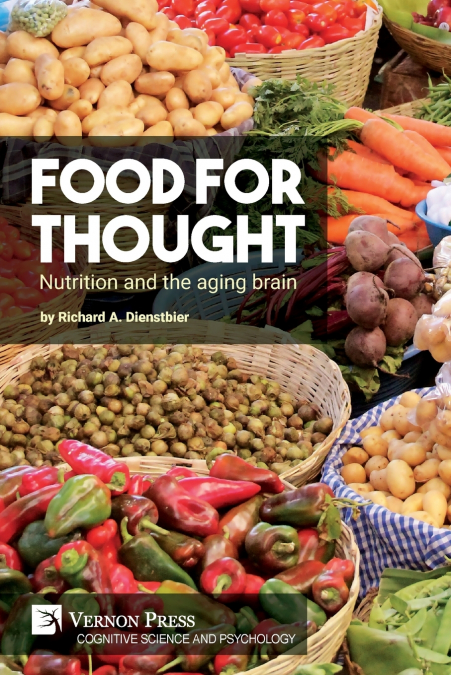
Richard A. Dienstbier
'Food for Thought: Nutrition and the Aging Brain' presents and analyzes the research on nutrition’s impacts on the aging brain, on possibly-declining cognitive abilities, and on changing emotional dispositions. With 40 pages of references, the depth of coverage of the underlying science makes the book appropriate for scientists in fields such as nutrition, geriatrics, and psychology. However, the book was also designed to be understandable for lay readers wanting a deeper understanding than can be found in typical books on food-brain relationships. To make this book useful for non-scientists and for students, the first three chapters provide background. They sketch relevant brain structure and neurochemistry, and then discuss in only slightly more detail how aging and stress affect neurochemistry, brain structure, cognitive capacities, and resilience. The third chapter introduces basic nutrition research issues, and the extensive Glossary provides additional explanations of scientific concepts. The subsequent 14 chapters consolidate modern research on impacts of nutrition on brain and cognitive capacities. The research shows how much various nutrients can affect cognition in aging people, and then how those impacts are achieved-that is, how genes are affected that in turn have impacts on neural structures and neurochemistry. That series of 14 chapters begins with analyses of general diets such as the Mediterranean and the MIND, but subsequent chapters examine impacts of specific classes of nutrients. Chapter 18 describes nutrition that affects resilience, interpreted as stress tolerance, and resistance to both anxiety and depression.Chapter 19 describes how other types of activities that affect brain and cognition, such as programs of physical exercise and cognitive stimulation, can interact with nutrition to build brain and sharpen cognition. The final chapter summarizes the information on nutrition impacts on brain and cognition, and extends the discussion of interactions of nutrition with other brain-enhancing activities.